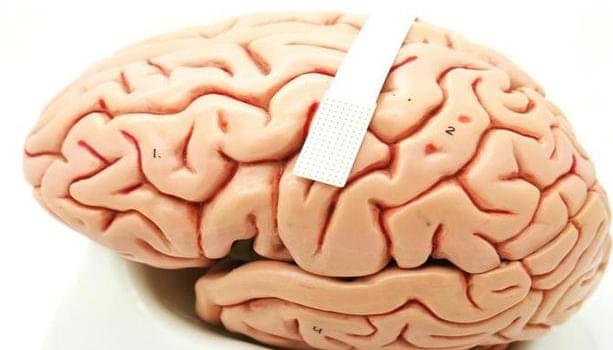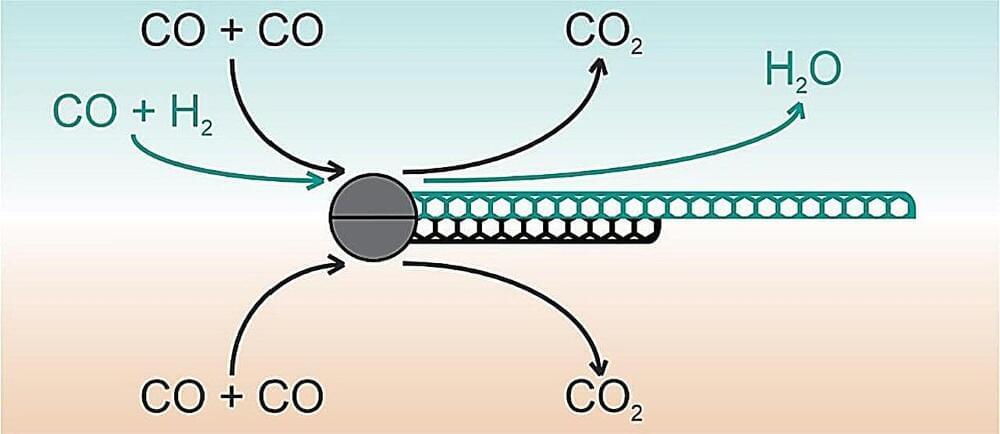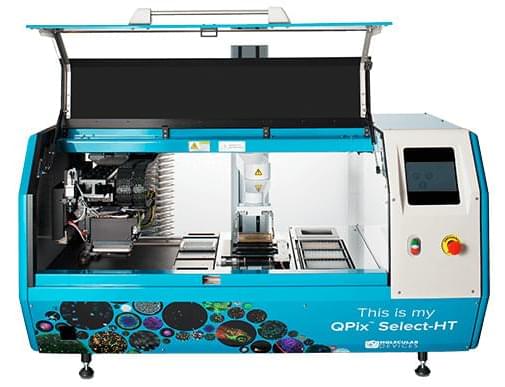Learn more about Clinical Trials and Immunotherapy for Head and Neck Cancer. Featuring speakers: Dan Paul Zandberg, MD (Director, Head and Neck and Thyroid Cancer Disease Sections, Division of Hematology and Oncology, UPMC Hillman Cancer Center), Ricardo Zwirtes, MD (VP, Clinical Development, SQZ Biotechnologies), Jeffery Shoop (Two-Time Head and Neck Cancer Survivor. (Presented by SQZ Biotechnologies, SPOHNC and Head and Neck Cancer Alliance)
Category: biotech/medical – Page 808
Penetrating Solid Tumors with CAR Immune Cells
Engineered immune cells have demonstrated great efficacy in lymphoma but not in solid tumors. On Oct 13th, 2021, two experts described recent advances in the development of CAR therapy for solid tumors.
Tamara Laskowski, PhD, Scientific Project Director of the CAR NK Program, Adoptive Cell Therapy Platform at the MD Anderson Cancer Center discussed “Engineering off-the-shelf CAR immune cells”.
Maik Luu, PhD, Project Principal Investigator at the University Hospital Würzburg, presented her results on “Improving CAR T therapy efficacy with the gut microbiome”.
BPS Bioscience CAR T-Cell Therapy Products: https://bpsbioscience.com/research-areas/car-t.
More about CAR T-Cell Therapy: https://bpsbioscience.com/car-t-cell-therapy-technical-note.
LinkedIn: https://www.linkedin.com/company/bps-bioscience-inc/
Treatment of Unresectable Stage 3 Non-Small Cell Lung Cancer
The Lung Cancer Webinar Series Presentation held on August 31, 2022 on “Treatment of Unresectable Stage 3 Non-Small Cell Lung Cancer” moderated by: Hatim Husain, M.D., Medical Oncologist, Associate Professor of Medicine, UC San Diego Health and discussants: Edward B. Garon, M.D., MS, Professor of Medicine at David Geffen School of Medicine, UCLA Department of Medicine, Division of Hematology/Oncology and Aaron E. Lisberg, M.D., Assistant Clinical Professor at David Geffen School of Medicine, UCLA Department of Medicine, Division of Hematology/Oncology.
SHOCKING REVELATIONS in Illegal Chinese Biolab Found in California
When a biolab owned by several Chinese nationals was discovered in the small town of Reedley, California, there was outrage that such a thing was going on without officials knowing anything about it. Unfortunately, that was the least of what Americans should be outraged about. In this episode of China Uncensored, we look at the CDC and FBI’s unbelievable responses, why the substances in the biolab were never tested, and how similarly shady behavior by the US government in regards to Chinese biolabs should make every American fear for their life.
How China Will Create The NEXT Pandemic https://www.youtube.com/watch?v=nVPmFFQBRaY&ab_channel=ChinaUncensored.
YouTube demonetizes our channels, we need your support!
https://www.patreon.com/ChinaUncensored.
https://chinauncensored.locals.com.
We also accept bitcoin!
https://chinauncensored.tv/bitcoin.
And Paypal:
https://www.paypal.com/donate/?hosted_button_id=GAHZXYHGCBP3L
Buy our merchandise!


Therapeutic Granulomonocytapheresis as a Non-pharmacologic Treatment Option for Inflammatory Bowel Disease: Efficacy Reports on a Wide Age Range and Disease Profile
The major phenotypes of inflammatory bowel disease (IBD) include ulcerative colitis (UC) and Crohn’s disease (CD), which cause debilitating symptoms, including bloody diarrhea, abdominal discomfort, and fever. Patients require life-long immunosuppressive medications, which cause adverse side effects as additional morbidity factors. However, IBD is initiated and perpetuated by inflammatory cytokines, and given that in patients with IBD myeloid lineage leukocytes are elevated with activation behavior and release inflammatory cytokines, selective depletion of elevated granulocytes and monocytes by granulomonocytapheresis is a relevant therapeutic option for IBD patients.
Therefore, a column filled with specially designed beads as granulomonocytapheresis carriers for selective adsorption of myeloid lineage leukocytes (Adacolumn) has been applied to treat patients with active IBD.

Brain Implant Can Enable Communication Through Thoughts Alone
A speech prosthetic developed by a collaborative team of Duke neuroscientists, neurosurgeons, and engineers can translate a person’s brain signals into what they’re trying to say.
Appearing Nov. 6 in the journal Nature Communications, the new technology might one day help people unable to talk due to neurological disorders regain the ability to communicate through a brain-computer interface.
“There are many patients who suffer from debilitating motor disorders, like ALS (amyotrophic lateral sclerosis) or locked-in syndrome, that can impair their ability to speak,” said Gregory Cogan, Ph.D., a professor of neurology at Duke University’s School of Medicine and one of the lead researchers involved in the project. “But the current tools available to allow them to communicate are generally very slow and cumbersome.”
Longevity-Associated Triglycerides
Join us on Patreon! https://www.patreon.com/MichaelLustgartenPhD
Discount Links:
At-Home Metabolomics: https://www.iollo.com?ref=michael-lustgarten.
Use Code: CONQUERAGING At Checkout.
Epigenetic, Telomere Testing: https://trudiagnostic.com/?irclickid=U-s3Ii2r7xyIU-LSYLyQdQ6…M0&irgwc=1
Use Code: CONQUERAGING
NAD+ Quantification: https://www.jinfiniti.com/product/intracellular-nad-test/
Use Code: ConquerAging At Checkout.
Oral Microbiome: https://www.bristlehealth.com/?ref=michaellustgarten.
Enter Code: ConquerAging.
At-Home Blood Testing (SiPhox Health): https://getquantify.io/mlustgarten.

Researchers triple carbon nanotube yield for LEDs, solar cells, flexible and transparent electronics
Skoltech scientists have found a way to improve the most widely used technology for producing single-walled carbon nanotube films—a promising material for solar cells, LEDs, flexible and transparent electronics, smart textiles, medical imaging, toxic gas detectors, filtration systems, and more. By adding hydrogen gas along with carbon monoxide to the reaction chamber, the team managed to almost triple carbon nanotube yield compared with when other growth promoters are used, without compromising quality.
Until now, low yield has been the bottleneck limiting the potential of that manufacturing technology, otherwise known for high product quality. The study has been published in the Chemical Engineering Journal.
Although that is not how they’re really made, conceptually, nanotubes are a form of carbon where sheets of atoms in a honeycomb arrangement—known as graphene—are seamlessly rolled into hollow cylinders.
